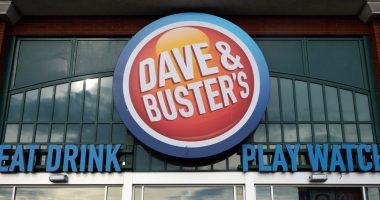
The food companies with the best shot at beating inflation are those that investors are least likely to know.
As costs rise along the global food-supply chain, shoppers are paying more for groceries on both sides of the Atlantic. Britain’s food-price inflation hit 4.5% in December 2021 compared with the same month of 2020, according to data released Wednesday by the U.K. Office for National Statistics. In the U.S., prices for food consumed in the home rose 6.5% year over year in December, while the eurozone’s measure was up 4.6%.
The jump in grocery bills still hasn’t reached levels seen during the 2008 financial crisis, when food inflation peaked at 7.6% in the U.S. and 13% in the U.K., according to data from the Organization for Economic Cooperation and Development. However, rising prices are now outstripping wage growth in both markets, which could become a problem for supermarkets and the packaged-goods manufacturers that supply them.
So far, shoppers have been prepared to swallow higher bills as savings accumulated during the pandemic mean they feel flush. But supermarkets still need to manage inflation carefully, if history is a guide. Following the financial crisis, the U.K. saw “a 30% increase in grocery prices when there was no wage growth, so there was a big erosion in purchasing power,” says HSBC analyst Andrew Porteous. This caused European shoppers to defect to discount retailers such as Germany’s Lidl and Aldi.
Supermarkets won’t now want to give up market share that took them years of heavy investment to claw back. But they also have less scope to absorb costs this time around. Two of Europe’s largest grocers by market value, Tesco and Carrefour, lost 1.1 and 1.3 percentage points respectively from already-slim operating margins between 2008 and 2020, according to FactSet data. If consumers’ spending power weakens, supermarkets have good reason to push back on big food companies asking for price increases.
The likes of Nestlé, Unilever and Danone will almost certainly be asking for more money. European consumer-staples companies could face inflation in their costs of goods sold of 12% to 15% in the first six months of this year, Bernstein estimates. Weaker brands will find the price negotiations with grocers particularly tough.
Food-ingredient stocks such as cocoa seller Barry Callebaut BARN -0.54% are potentially more shielded from such pressures. Their costs are going up, too: Irish ingredients company Kerry Group KRYAY 1.54% reported raw-material inflation of 2% to 3% in its third quarter. However, their customers that turn ingredients into branded food are heavier users of packaging and transport, where prices are spiraling.
Ingredient makers also have more frequent opportunities to push through price increases as negotiation windows are less tightly regulated. Price talks between food brands and supermarkets only happen once a year in many European markets. And being able to supply the highly specialized ingredients that global food manufacturers need in very large quantities gives them leverage to pass on costs.
If food inflation unexpectedly tails off, or is offset by strong wage growth, there will be less to worry about. Supermarket stocks might be good to own in this scenario as demand for food has remained high: European grocery sales in 2021 were 10% above pre-pandemic levels in many markets, Bernstein notes, helping the local grocery stocks to outperform the MSCI Europe Index by 6%, including dividends.
But that rosy scenario looks increasingly unlikely. As inflation takes hold, investors need to look higher up the food chain.
Write to Carol Ryan at [email protected]
Copyright ©2022 Dow Jones & Company, Inc. All Rights Reserved. 87990cbe856818d5eddac44c7b1cdeb8









